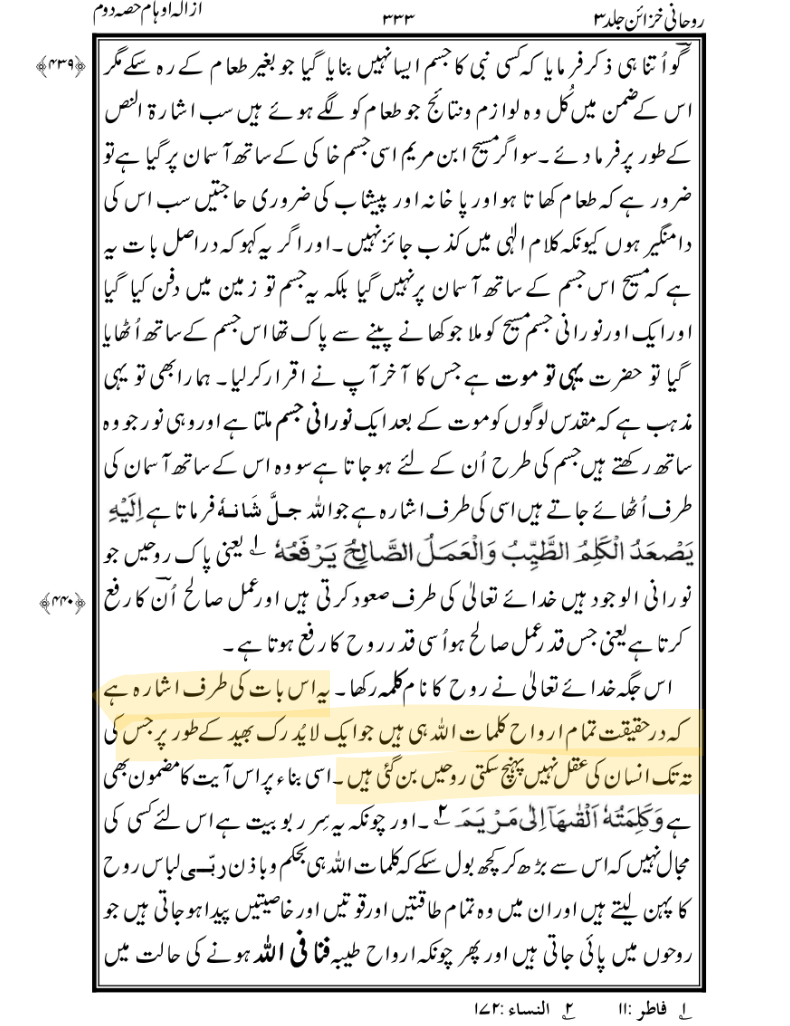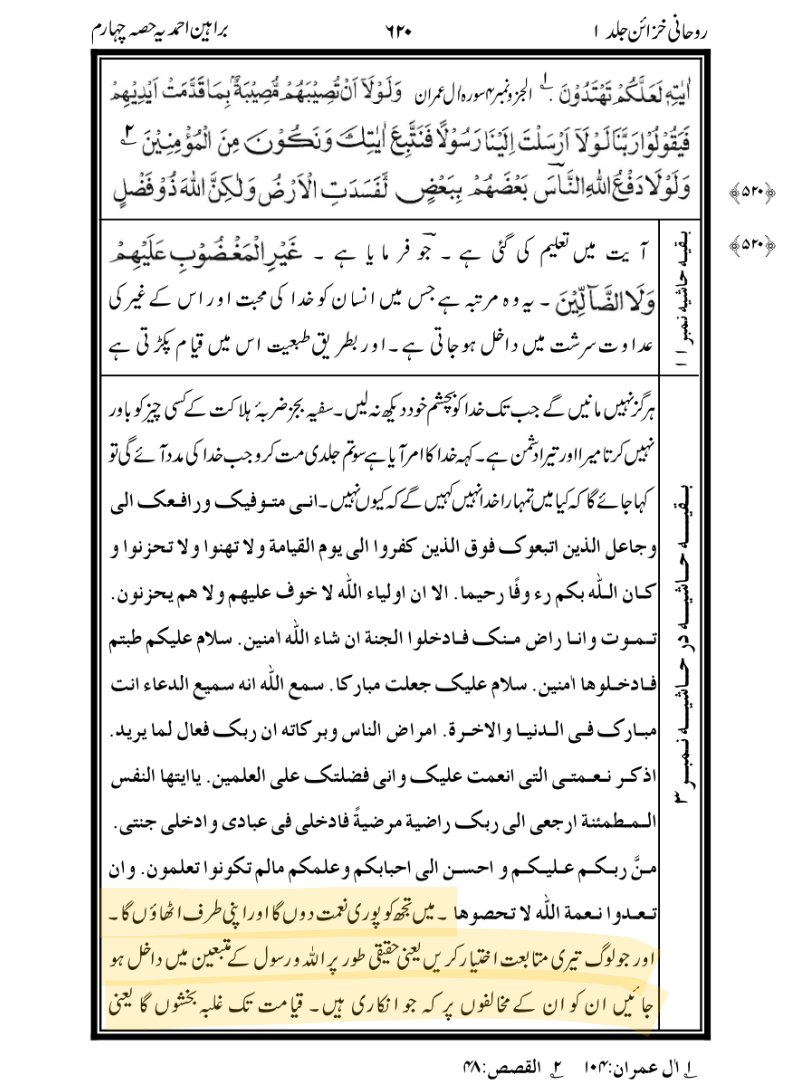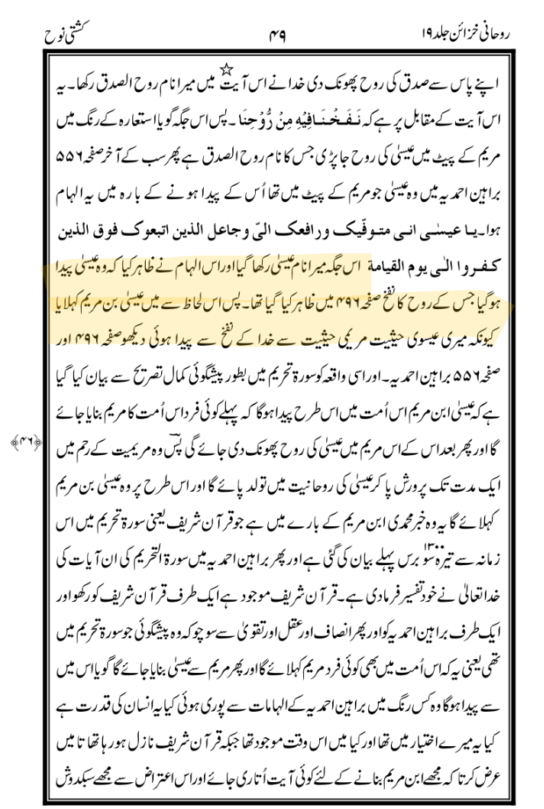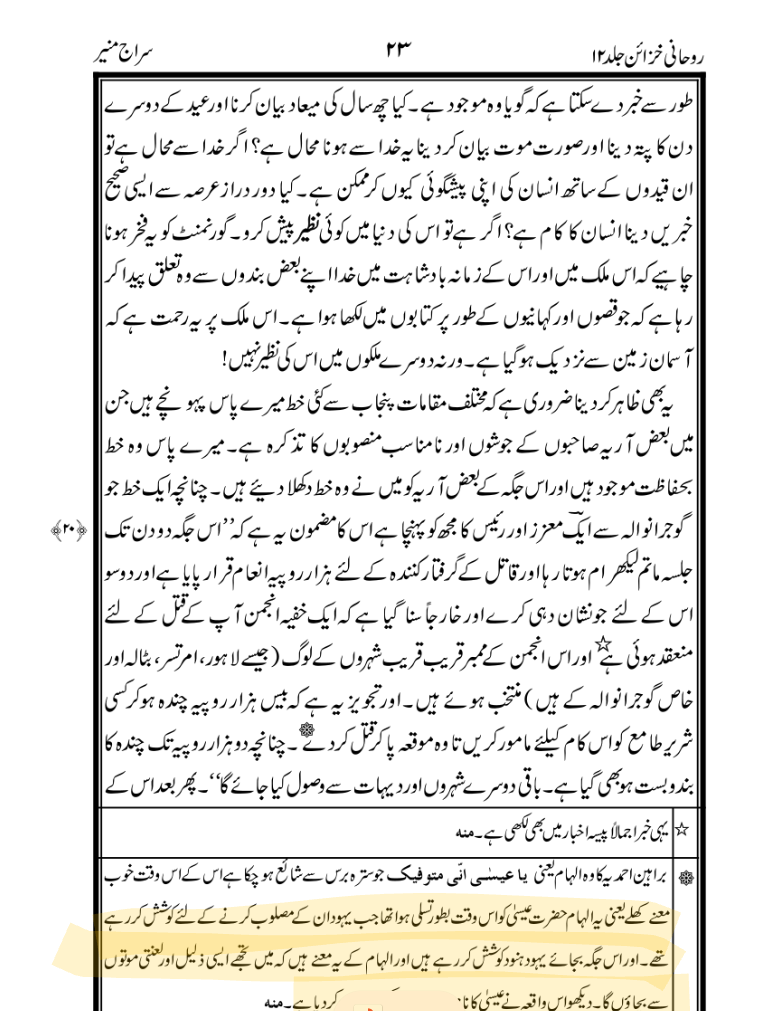In his book Azala-e-Oham, Mirza Ghulam Ahmad Qadiani outlines a principle regarding the “real” and “metaphorical” meanings of words, which is crucial to understand.
He States:
“It will be known to even a person with minimal knowledge that when a word is used with its established real meaning, i.e., the meaning that it has become commonly accepted or generally used for, the speaker does not need to provide any supporting evidence to clarify its meaning because it is widely understood and its interpretation is immediate. However, when a speaker uses a word in a metaphorical sense, deviating from its established real meaning, then a clear indication or sign must be provided explicitly or implicitly, or in some other way, so that it does not create confusion. In this regard, there is a clear sign that the speaker has used the word in its real meaning, widely understood and recognized without needing supporting evidence. But when using a metaphorical meaning or a rare metaphor, the speaker cannot be vague; rather, it is his duty to provide some sign, which an intelligent person can recognize, indicating that the word is not being used in its original meaning.”
(Azala-e-Oham, p. 333, Khawzain, Vol. 3)

You have seen the principle: Mirza says that for using a metaphorical meaning, some indication (or “qarinah”) is necessary. We have previously proven that the real meaning of tawafi is “to take something completely” and its metaphorical meaning is “death.” Therefore, for taking the real meaning, no indication is required, but according to Qadiani’s principle, they must provide an indication to take the metaphorical meaning of death, and in the verse we are discussing, there is no such indication for taking the meaning of death. The real meaning of tawafi should be taken, as we have already presented numerous arguments for it, supported by references from Tafsirs and Arabic dictionaries.
Now, let’s look at a few references from Qadiani’s own books. Mirza Ghulam Ahmad Qadiani has explained the meaning of tawafi as “to give full blessings.” He writes:
“‘I am going to give you full blessings and raise you to Myself and I will make those who follow you superior to the disbelievers until the Day of Judgment’…”
(Roohani Khazain, Vol. 1, p. 620)

In this passage, Mirza has explained tawafi as “to give full blessings.”
Next, consider another reference where Mirza Qadiani writes about his own revelation:
“O Isa, I am going to raise you to Me…”
(Roohani Khazain, Vol. 19, p. 49)

Here, Mirza Qadiani explains that this revelation refers to the birth of Isa (Jesus) as a metaphor for his own identity.
In another passage:
“In Brahine Ahmadiya, this revelation: ‘O Isa, I am going to raise you’ was understood as a reassurance when the Jews were attempting to crucify Jesus. It means that God would protect him from disgraceful deaths.”
(Roohani Khazain, Vol. 12, p. 23)

Here, Mirza has interpreted tawafi as “to protect from a disgraceful and cursed death.”
Furthermore, in Brahine Ahmadiya, Volume 5, he writes:
“This prophecy indicated that I will save you from death and crucifixion.”
(Brahine Ahmadiya, Vol. 21, p. 362)

In this instance, Mirza has interpreted tawafi as “to save from death and crucifixion.”
Now, Qadiani followers, which one of these three meanings is correct, and which is incorrect? Which one is real, and which one is metaphorical?
Finally, consider the first caliph of the Qadiani community, Hakim Noor-ud-Din, who explains tawafi as follows:
“‘When Allah said, O Isa, I am going to take you to Myself and raise you, and purify you from the disbelievers, and make those who follow you superior to the disbelievers until the Day of Judgment’… This is when Allah said, I am going to take you…”
This is a compilation of references provided by the Qadianis themselves. I hope these are sufficient for clarity. (Note: Since we believe that the metaphorical meaning of tawafi is death, any reference provided by the Qadianis in which tawafi refers to death will not be against us.)
Conclusion:
The examination of Mirza Ghulam Ahmad’s explanation of “real” and “metaphorical” meanings clearly shows that, according to his own definitions and the evidence presented, the real meaning of tawafi is “to take completely” or “to give full blessings,” and the metaphorical meaning of death requires a clear indication, which is absent in the context discussed.